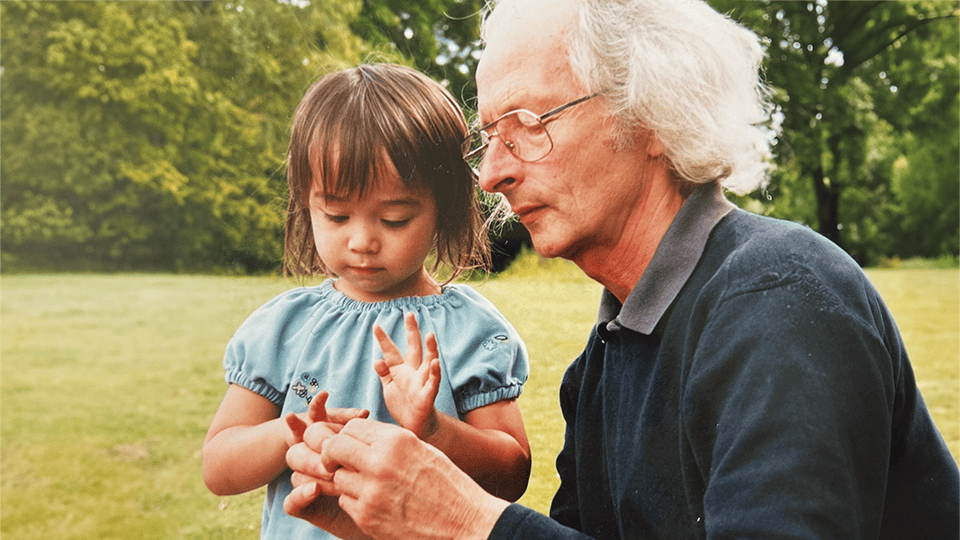
Saïna’s story – A song for my beloved grandpa, Ralph
Saïna opens up about how her grandfather’s dementia has affected her, and how songwriting has provided a release.
Music is an important part of life for many of us, including those living with dementia, from encouraging memories using specific songs to using music to communicate and connect with others. This page will help you understand the benefits of music therapy and how it can impact the brain.
Music therapy involves a trained person working with an individual or a group, using music to help them express themselves and communicate with others.
For some people with dementia, music therapy has been shown improve their thinking, feeling, perception, mood and behaviour. It can be used as part of a care plan.
In many areas, there are music and singing groups for people with dementia, and care homes often run music-based activities too.
You can also search for music therapy services and independent music therapists.
Research shows music can help reduce heart rate and blood pressure, relieve muscle tension and help people manage pain.
It can also trigger feel-good hormones called endorphins, which may ease depression, anxiety and agitation.
Music can have a positive impact on people’s mental abilities, too, improving:
All of these processes can be impaired by dementia, making music extremely beneficial for people with the diagnosis.
Listening to or engaging in music – for example, by singing, dancing or playing instruments – can help people with dementia develop and maintain relationships with others and improve their wellbeing. There are many ways in which music can provide joy to someone with dementia.
Music can also help a person with dementia to connect with the past by evoking memories, feelings and emotions that they might otherwise find hard to express.
For example, they may find it easier to recall memories when they hear pieces of music that are significant to them – perhaps their favourite song from the past or a lullaby they used to sing to their children.
Certain types of music can reduce distress, and can be particularly comforting, particularly classical music or pieces from a persons past, such as favourites from a happy time in their life.
Music can help to encourage mental stimulation and encourage a person to engage. Carers and family can help while listening to music by:
Music can also help to encourage physical exercise, dance and movement.
It’s important to choose music that the person knows and enjoys, as they will be more likely to react positively to it.
You can do this by asking them or other family members and friends what they like, or by trying out music that was popular in the person’s youth or within their cultural background.
Start with quiet, gentle music and see how the person reacts.
Music can be used in a group or individually – both at home and in care settings. You could try:
You can use pictures or photos alongside the music to reminisce and share memories, this can also help them to tell their story and share their personal history.
It can be particularly helpful to use music when undertaking personal care, to help reduce distress.
If the person seems uncomfortable or distressed, try something different – it may just be that they don’t like that particular music or song, but remember that music can also trigger negative emotions or bad memories.
If this happens, the best response is to turn off the music and sit with them to offer comfort and reassurance.
If you need advice on music and dementia – or any other aspect of dementia – please call the Dementia Helpline on 0800 888 6678 (Monday-Friday 9am-9pm, Saturday and Sunday 9am-5pm, every day except 25th December), email helpline@dementiauk.org or you can also book a phone or virtual appointment with an Admiral Nurse.

Saïna opens up about how her grandfather’s dementia has affected her, and how songwriting has provided a release.

Janet shares her experience caring for husband Ben and how they maintained the joy of Christmas after his diagnosis.
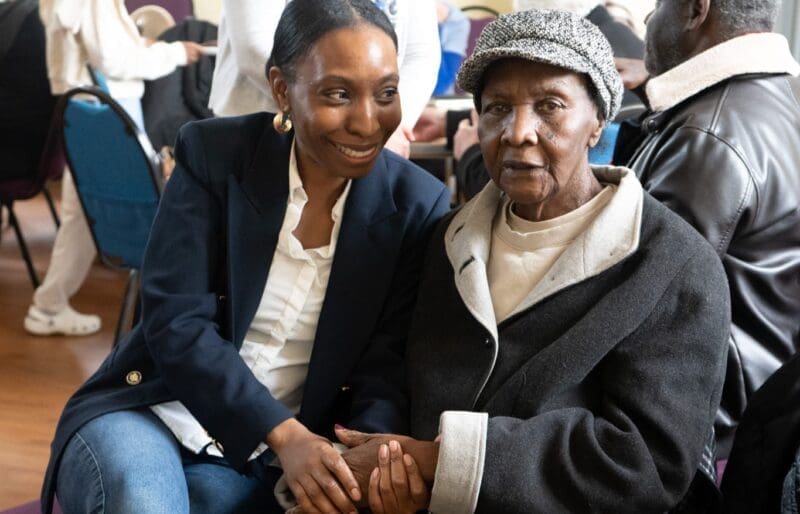
When Michaela’s grandmother, Vanda, was diagnosed with vascular dementia, she dedicated herself to creating a place where dementia wasn’t a taboo subject.
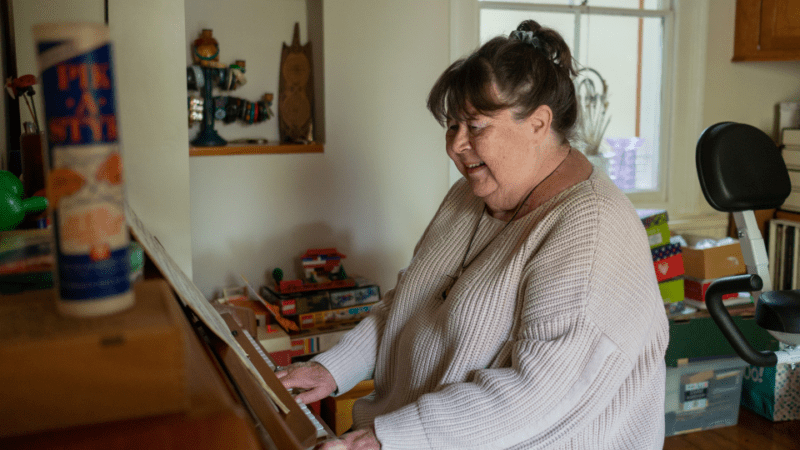
Ahead of the Eurovision Song Contest Grand Final, Kerry Lyons, Consultant Admiral Nurse for Frailty and Physical Health, talks about the importance of music for people with dementia
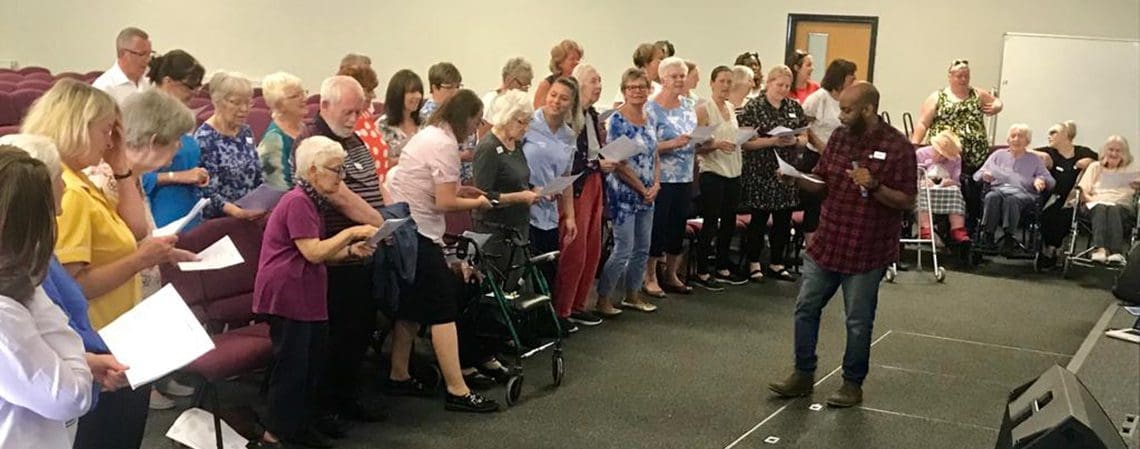
How Ruth was inspired by BBC's 'Our Dementia Choir' to establish her own local choir for people living with dementia
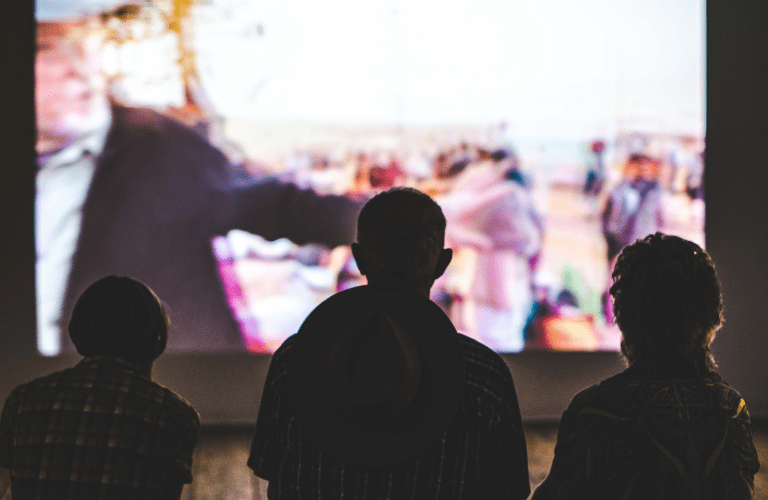
Admiral Nurse Jo Freeman looks at the practical steps families can take to make the most out of a trip to the cinema.